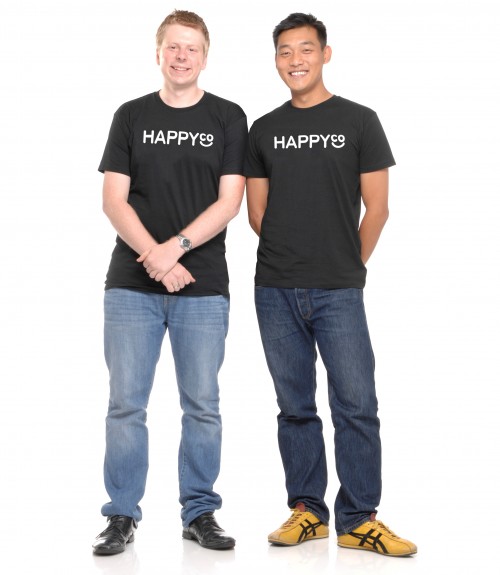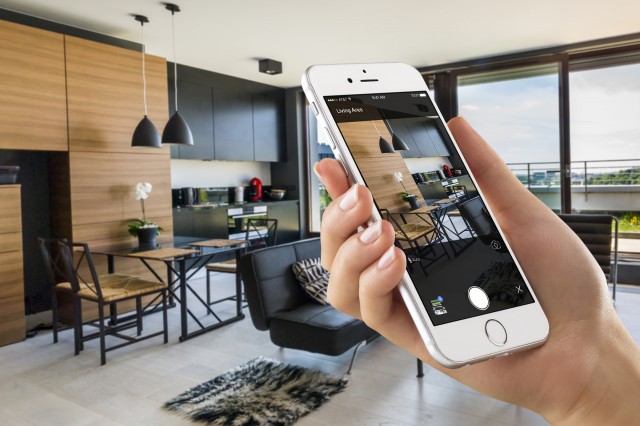
Property management software developed in Australia is finding success in one of the world’s biggest tech hubs – Silicon Valley.
HappyCo relocated from Adelaide, South Australia, to San Francisco in 2012 to further develop its suite of programs aimed at helping property owners stay on top of inspections.
It now has three apps – the last two of which launched in 2015 – that remove the need for paper-based processes and use cloud-based inspections and analytical software to deliver information in real-time.
HappyCo has more than 1000 clients in 140 countries, including Equity Residential, Fox and Hound Sports Tavern, Jetts 24-hour Fitness and fast-food chains such as Domino’s Pizza.
Co-founder and CEO Jindou Lee said HappyCo’s mobile apps collated information up to 70 per cent faster than traditional manual methods.
“It’s really weird but a lot of the world’s biggest companies are still using paper, which takes about four to six weeks to get back to the head office,” Lee said.
“The market we are going after in North America alone is a US$30 billion market and once you start looking at Asia and Australia, we have barely scratched the surface of it.”
Lee is originally from the South Australian capital Adelaide where he worked in software development for former video game developer Ratbag games.
After moving into real estate investment he noticed the inefficiencies that had plagued the industry for decades.
“Back in 2010, property managers took photos of properties, scanned it and then faxed it to me – I didn’t even have a fax machine,” Lee said.
So he decided to build something of his own and together with co-founder Andrew Mackenzie-Ross created HappyCo.
After some early success Down Under, Lee moved the company to Silicon Valley to grow it further.
HappyCo’s premier program, Happy Inspector, allows managers from big corporations with multiple stores to keep operations running smoothly by documenting field operations.
Another program in the suite, Happy Manage, then uses simple compliance checklists to monitor health and safety regulations and workplace productivity, which are then sent through to a client’s head office.
If a store was unclean, had broken equipment or machines, or was not operating efficiently, inspectors could take photos and fill out digital forms to document any deficiencies.
All checklists and templates are customisable and the program lists reports from all inspections the moment they are entered into Happy Inspector.
Happy BI (Business Intelligence) is the final app in the suite and delivers real-time analysis of operation performance metrics across an enterprise.
It helps users track their KPIs with graphs and dashboards for totals and averages.
One of HappyCo’s clients is Equity Residential, which owns almost 100,000 apartments in more than 300 locations across the US.
It previously relied on note taking to record all of the areas properties improvement.
This proved to be increasingly unreliable because it took hours to complete each inspection across its thousands of properties.
Aside from taking a long time to document, it also raised other issues such as ineligible handwriting and delayed report deliveries.
Lee said once Equity Residential adopted HappyCo’s suite of products to standardise its ingoing and outgoing inspections, it found the apps easy to use and far more efficient.
It then rolled out 300 iPads to its on-site teams so they could not only fill out the custom-made forms easier but ensure there were high quality photographs of each inspection as well.
Since its inception, HappyCo has delivered more than 1.5 million inspections and captured more than 25 million photos since its launch in the United States alone in 2012.
“The apps aren’t just doing checklists and ongoing management, they are able to lower insurance premiums as well,” Lee said.
“Liability is a huge issue and depending on the industry, like the property management space, a customer could save 10 per cent of their damage recovery – 10 per cent over 100,000 units is worth millions of dollars and a potential lawsuit.”
Find a Home-Based Business to Start-Up >>> Hundreds of Business Listings.















































